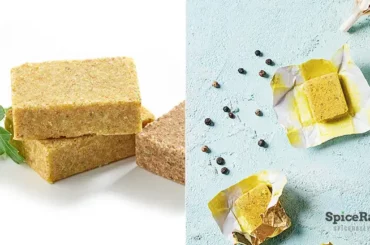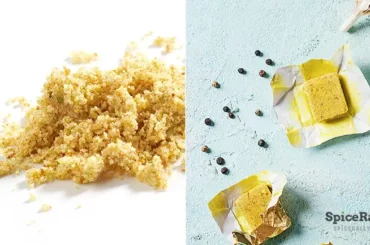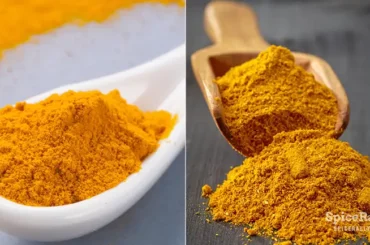If someone ever asks you to name two seasoning blends that often confuse you, we are sure that pizza seasoning and Italian seasoning would fall on the top of your list. So, how are they really different from each other? On that note, this post is dedicated to discussing everything you need to know about pizza seasoning vs Italian seasoning.
The key difference between Italian seasoning and pizza seasoning comes down to their ingredients. In fact, pizza seasoning is a mixture of spices and herbs, while the traditional Italian seasoning often shows up only with herbs. Correspondingly, their flavor profiles tend to differ, with pizza seasoning being a bit more flavorful.
So, if you ever happen to keep these two seasoning blends side by side and wonder if they are the same or different, you will get all the answers right in this article. Keep reading!
Pizza Seasoning vs Italian Seasoning
| Pizza Seasoning | Italian Seasoning | |
|---|---|---|
| Ingredients | Onion powder Garlic powder Black pepper Red chili flakes Fennel seeds Paprika (optionally used) Basil Oregano Rosemary Thyme Parsely Marjoram Salt Some commercially made options may also include: Parmesan cheese Celery Dried onions Dried bell peppers | Oregano Basil Sage Rosemary Marjoram Thyme Some recipes might occasionally include optional ingredients like: Savory Dried garlic Parsley Salt |
| Flavor profile | Spicier than Italian seasoning. It has salty, earthy, herbal, savory, and umami flavor notes with a mild heat. | Less spicy than pizza seasoning. Has a more herbal touch than pizza seasoning with a balance of savory and slightly sweet undertone. (Is occasionally salty) |
| Texture | Dry and coarse | Dry and coarse |
| Mode of usage in cooking | As a cooking ingredient | As a cooking ingredient |
| Usages in cooking | – To use in pizzas – As a flavor enhancer in slow-simmering sauces and gravies – To mix into soups – To sprinkle on top of garlic bread or incorporate into bread doughs – Sprinkle on top of roasted vegetables – As an ingredient in roasted meat and salmon dishes | – In savory rice dishes – To season meat and seafood – With pasta, lasagna, and spaghetti – To integrate into meatballs, sausages, and burger patties – With various vegetable dishes – To be incorporated in salad dressings, vinaigrettes, and dipping sauces. |
| Origin | Italian cuisine | The origin is a bit debatable. Some sources say this is an American outcome, while some say this has been initiated from Mediterranean cuisine. |
| Availability | – Comes in containers and packets. – Readily available in supermarkets, grocery stores, and online shopping sites. | – Comes in containers and packets. – Readily available in supermarkets, grocery stores, and online shopping sites. |
| Mode of production | Both commercial and homemade options exist. | Both commercial and homemade options exist. |
| Storage | – Should be stored in a tight-fitting glass container in a cool, dry, dark place – Can be kept with other dry spices and herbs in your spice rack. | – Should be stored in a tight-fitting glass container in a cool, dry, dark place – Can be kept with other dry spices and herbs in your spice rack. |
The Difference Between Pizza Seasoning and Italian Seasoning In Detail…
Both of these seasoning blends have their own way of adding a distinctive taste to our dishes. Despite the fact that a similar set of herbs feature in both of them, they have some significant differences in terms of other ingredients and usage in cooking.

As the name suggests, Italian seasoning has a characteristic ability to complement many Italian-inspired dishes like pasta, lasagna, risotto, etc. On the other hand, while pizza seasoning is mainly used to flavor pizza, it also becomes an excellent taste enhancer in Western-inspired salad dressings, soups, bread doughs, etc.
However, on the bright side, both Italian seasoning and pizza seasoning can be used interchangeably in many recipes. Thanks to the comparable herbal tone they share, both are great substitutes for each other, particularly in dishes that call them as secondary elements.
Pizza Seasoning vs Italian Seasoning In A Nutshell
As we shared throughout this episode, pizza seasoning and Italian seasoning possess some notable differences, although they look pretty similar in appearance. In fact, traditionally, Italian seasoning contains only a few aromatic herbs, while pizza seasoning is a highly customizable blend showing up with many additional spices and herbs.



